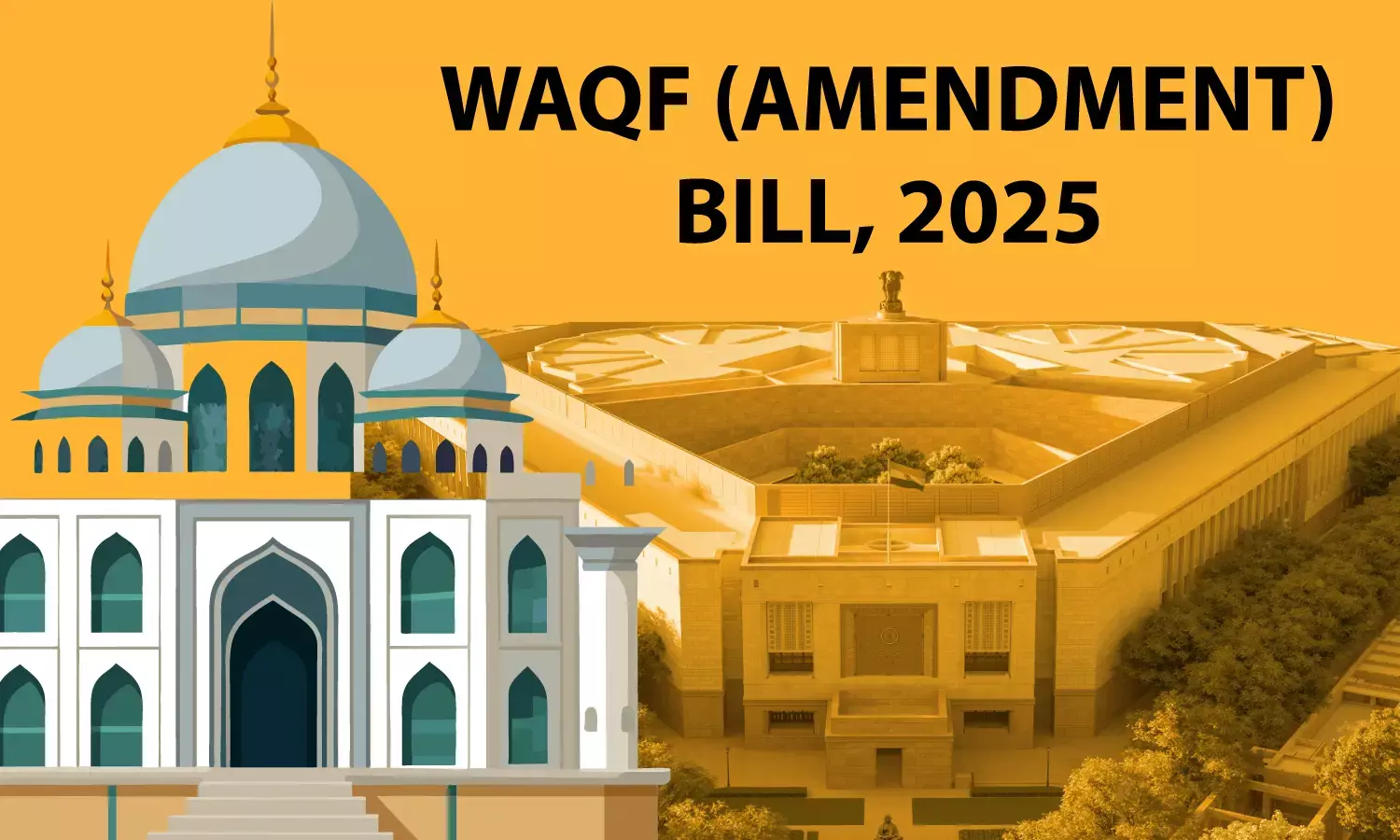Yet another legislative framework sparks stark controversy in the nation. This time, the Waqf (Amendment) Bill, 2025, recently passed by the Lok Sabha, has sparked intense debates – from the politicians to popular communities, the talk of the Bill is the take of the town.
The central government, in its attempt to check transparency and accountability in the management of the Waqf property, has faced backlash from the opposition and critics, who view it as an encroachment on the autonomy of Muslim religious institutions.
The bill moves to the Rajya Sabha for consideration. Let us examine the provisions, objectives, potential consequences, and the controversies surrounding it.
What are the objectives of the amendment?
The Waqf Act, 1995, governs the administration of Waqf properties in India, which are religious endowments designated for charitable or religious purposes in Islam.
It includes both movable and immovable assets. On the other hand, donations can be made by both Muslims and non-Muslims.
These properties are managed by Waqf boards established at the state level. As of now, over the years, the management has been accused of corruption, mismanagement, and illegal occupation of Waqf lands. Hence the reform.
The objectives of the Waqf Bill 2025 are briefly put as follows: to address these issues by introducing stricter regulations on the management of Waqf properties; to ensure greater regulatory and government oversight; reduce land-related disputes; and promote inclusivity by allowing non-Muslims to be part of the Waqf boards.
However, as it seems, i.e., controversial, these provisions have been affronted with opposition from various quarters.
Salient Features of the Waqf Bill, 2025
- Inclusion of Non-Muslim Members in Waqf Boards
One of the most contentious changes in the amendment is the provision allowing for the appointment of non-Muslims to Waqf boards.
The bill proposes that at least two members of the board, including the Chief Executive Officer (CEO), may be non-Muslims, who will be appointed by the state government.
The government argues that this inclusion will enhance transparency and curb corruption by reducing monopoly over decision-making within the boards.
- Government Validation of Waqf Property Claims
Under the amendment, all Waqf boards will be required to receive validation from the government for vesting their ownership in the property.
The government will then have the authority to verify and approve whether a particular property legally qualifies as a “Waqf land.
The rationale behind this step is being justified as an effort to prevent unauthorized and fraudulent declarations of private or disputed land as Waqf property.
Restrictions on the Declaration of Waqf Properties
The bill introduces a rather stringent set of guidelines to prevent individuals or organizations from unilaterally declaring properties as Waqf land.
Previously, once a property was designated as Waqf, it became difficult to challenge such claims legally. The new provisions ensure that such declarations are put under scrutiny before they are officially recognized.
Arguments in the Motion
The Union argues that these changes are necessary to modernize the management of Waqf properties. The government also points out the losses of arrears of valuable land to the malpractices of corruption and mismanagement in the Waqf Boards.
It is also argued that by including non-Muslims in Waqf boards, decision-making will become more transparent and less influenced by political or sectarian interests.
They also emphasize that the bill does not alter the religious purpose of Waqf properties but merely seeks to ensure their rightful management and prevent unlawful encroachments.
Lastly, the move to validate Waqf property claims is seen as a step toward curbing land disputes.
The government ensures that the properties that were wrongly classified as Waqf land can be returned to rightful owners, thereby mitigating legal battles that often last for decades.
Arguments against the Motion
The government’s justifications have proved futile to its critics. The bill has faced stubborn resistance from opposition parties and other political-religious pressure groups.
One of the primary concerns is that allowing non-Muslims to hold decision-making positions in Waqf boards undermines the autonomy of a religious institution.
The critics, again, argue that since Waqf properties are created specifically for the welfare of the Muslim community, their management should remain exclusively within the purview of Muslim representatives.
To add in the given list of rebuttals, the provision granting the government authority to validate Waqf property claims instilled fears of arbitrary state interference and also, potential property seizures.
They argue that the government could use this power to take control of historical mosques and other Waqf properties under the pretext of “validation.”
It is also noteworthy that, given the past instances where Waqf lands have been controversially acquired for developmental projects, there is a strong concern that this amendment could be misused.
Lastly, many others see the bill as part of a larger pattern of legislative actions perceived as undermining minority rights. The opposition claims that rather than reforming Waqf management, the bill serves a political agenda aimed at diluting the influence of Muslim institutions in India.
Constitutional and Legal Implications
The amendment also raises significant constitutional questions with regard to religious freedom and minority rights.
Article 26 of the Indian Constitution guarantees religious denominations the right to manage their own affairs in matters of religion. By mandating non-Muslim representation on Waqf boards, critics argue that the bill infringes upon this constitutional right. However, it wouldn’t be long, as this provision, along with similar others, will be contested in the court too.
The amendment could also face legal challenges on the grounds that it disproportionately targets Waqf institutions while similar measures have not been introduced for Hindu endowments or Christian trusts.
This selective approach could be questioned under Article 14 of the Constitution.
Potential Political and Social Ramifications
Beyond the legal and administrative aspects, the bill brings a complex jargon of political and social implications. The strong pushback from Muslim organizations and opposition parties suggests that the bill could deepen communal tensions.
Protests have already erupted in several states, with calls for the bill’s withdrawal gaining traction.
In the broader political context, the amendment aligns with the ruling party’s larger policy approach towards religious and historical institutions.
While it is presented as a governance reform, its undoubtedly to miss the sight of the critical analysts, who have lauded the timing and selective application with suspicions as to its true objectives.
Conclusion: A Reform That Needs Reconsideration?
The Waqf (Amendment) Bill, 2025, is undoubtedly about to become one of the most controversial legislative proposals in recent times.
The stated objective of improving transparency in Waqf management is commendable, however, the means through which it seeks to achieve this goal have raised serious concerns about minority rights and religious autonomy.
As the bill moves to the Rajya Sabha, it remains to be seen whether further modifications will be made to address these concerns.
A balanced approach—one that ensures better governance of Waqf properties while respecting the constitutional rights of religious minorities—would be the ideal way forward. Without such considerations, the bill risks becoming a flashpoint for greater religious and political discord in India.
REFERENCES:
- https://lawchakra.in/legal-updates/kiren-rijiju-waqf-bill-rajya-sabha/
- https://pib.gov.in/PressReleasePage.aspx?PRID=2118415#:~:text=The%20Waqf%20Amendment%20Bill%202025,Government%2C%20currently%20regulates%20Waqf%20properties.
- https://pib.gov.in/PressNoteDetails.aspx?NoteId=152139&ModuleId=3®=3&lang=1
About Author

Tanishq, a law student at the Department of Legal Studies and Research, Barkatullah Vishwavidyalaya, Bhopal, is a budding legal writer with a sharp eye for evolving legal landscapes. Passionate about Intellectual Property Rights, Constitutional Law, and Women and Child Safety Laws, Tanishq actively explores contemporary legal nuances through writing and research.

